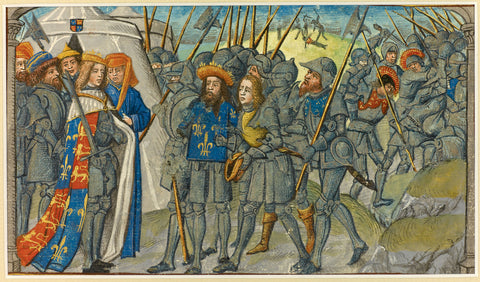The Herald 4

One of the most important rules of Heraldry is that each coat of arms is unique to the bearer and may only be worn by the person that they are registered to. The one exception to this rule was the Herald of the king or queen who took on their master's identity by wearing the royal coat of arms. The Herald was considered the voice of the crown. It was a hanging offense to harm a Herald who bore the royal coat of arms. Royal proclamations were also announced by the heralds. Henry VIII often employed heralds to parley with rebels or foreign princes but by Elizabeth’s reign this duty was rarely assigned to the heralds. The primary ambassadorial duty during this period was a ceremonial one: that of conferring the Order of the Garter on foreign rulers.




